Today, living in a world more Orwellian than ever, a place closer to a nightmare than to living the dream, humanity seeks its refuge in whatever means it can. We gladly spend hours in front of a screen (only just staring, nothing harmful, right?) each day and while everyone seems to agree this is a real issue, it's something nobody wants to deal with.
We're told to accept this as the new 'status quo' – after all, in this brave new world of ours brimming with technology and all sorts of exciting opportunities, it's natural that some will get lost through the cracks. That, like with anything, there will be folks who will become addicted to their smartphones, tablets, televisions and other such neat little gadgets that are readily available to us.
And if you consider this, it only stands to reason. The phrase I just told you makes perfect sense – it's natural that some will become dependent. Addiction is a word that has infiltrated our ears more and more often in the last few decades, becoming almost a household name. In this day and age, everyone's addicted to something – heroin, alcohol, fast food, video games, sex, shopping. The list is endless and as a young girl in our modern world, I notice with increasing despair that it's very hard to navigate the Earth without dropping into one of its many pitfalls.
And I wonder – why?
Fine, it's normal to become addicted, to show weakness and traces of escapism – because that's what addiction is, basically, just your need to escape. From a disappointing career, a boring life, a loveless marriage...
And while we're told it's normal to become addicted, that it's natural for the modern human to display such blatant need for escape, we're almost never encouraged to ask what is going on? Why do so many people in our society need to get out of it, by any means necessary?
Well, I'm afraid I just answered – we want to escape society because...of society. The world we live in is far from a happy one, there is a war at every corner. We're facing dire ecological situations and the people who are in charge of leading us are doing their best to rob us blind and work us into an early grave. Who wouldn't want to escape from that?
One of my favorite authors, Neil Gaiman has a wonderful quote on escapist fiction, something I'll get to in a moment:
“I hear the term bandied about as if it’s a bad thing. As if ‘escapist’ fiction is a cheap opiate used by the muddled and the foolish and the deluded, and the only fiction that is worthy, for adults or for children, is mimetic fiction, mirroring the worst of the world the reader finds herself in.”
And I think this addresses the issue perfectly – the worst of the world we find ourselves in, which is exactly what drives us to want to escape, to get out of here. We look around and it's impossible not to see the bad things. I know, we tend to focus on other, happier details such as celebrity gossip or the latest sports match, but those, in turn, are only escape routes.
If you were to stare the world in the face right now, you'd find it's quite a bleak place and there's not all that much you can do about it.
So, you leave. Because it's in our nature to get away from anything and everything that's bad to us, by whatever means necessary.
Fictional Escapism – the world through different eyes
A very popular means of escape from our current situation is fiction and while a lot of that has transcended unto the screen nowadays, it started in print. For as long as man has been able to speak, he has told stories. In fact, that's how many of our current fairytales, folklore and myths have carried over, through oral form, since thousands of years ago, it was much easier to tell a story than to write it.
And for as long as we've been able to carry a story, we've created other worlds, routes of escape. Because there was always something to escape from – be it dinosaurs, enemy tribes or disease, we have always sought refuge in words.
By definition, escapist fiction is a type of writing that lets you leave behind your current problems and the horror of the world you inhabit for the delights, or even worries, of another. And it's a term laden with negative connotations, as Neil Gaiman pointed out, although it shouldn't be. It's one of the best, most creative ways to get out and the fact that there are so many popular literary destinations only proves that point. And since we've had a look at escapism itself and why we do it, I thought it would be interesting to also have a look at where we go when we escape.
Middle Earth and the Tolkien Universe
Arguably the most well-known and influential fictional reality, Tolkien's universe has fascinated readers, young and old, for over eighty years, ever since the publication of The Hobbit in 1937. Combining mythology as well as J.R.R. Tolkien's own experiences in WW1, The Hobbit takes the reader on the adventure to beat all adventures – an unlikely hero, the hobbit Bilbo Baggins, departs his quiet, simple home to join a band of dwarves on an epic quest. Together, they fight, trick and win their way through dungeons, elves, goblins even a huge fire-breathing dragon.
We are transported into a land of wizards, a place where anything goes, where the reader's imagination can run wild. And yet, despite all the differences to our own world, it quickly becomes a home to many, with its dense but exciting lore and its relatable characters.
And what's truly great about The Hobbit is that it's as much a tale of fantasy as it is one of friendship, loyalty, loss and in the end, humanity.
The Hogwarts School of Witchcraft and Wizardry
Another exceedingly popular destination for escape is the fantastical world of the Harry Potter series, where we follow the adventures of a young boy who discovers he's a wizard and soon, that he's the most important wizard in the world. I think it's very easy to see why this is such a popular escape for so many people. After all, isn't that what most people wait for? To get the call or in this case, the letter, informing them that they're someone truly special.
Harry Potter, like most fantasy heroes, is a mirror image for our inner, truest self, the one who still believes in dragons and magic and who still wishes he could be a hero. That's the attraction of being a hero because, in our world, we find that it's not only unfashionable to view yourself as such, but also impractical. We can't all be heroes, the world teaches us, and yet, books come and tell us a different story – because every reader is a hero.
Every reader can be Harry Potter or Bilbo Baggins, at least in his own mind. And that's the escape we're looking for. We want to be the saviour, the wizard who must overcome his fears and faults to defeat the evil Lord Voldemort and save the world.
I'd say that's the greatest attraction of fiction, not that it tells us magic is real, but that we can still be heroes.
The Seven Kingdoms, the Winding Reality of A Song of Ice and Fire
I figured I couldn't write an article about fictional escapism and not mention A Game of Thrones – how could you? This series has rapidly become our new Hobbit, our new Harry Potter. And while I don't think it can take either's place, I must admit it's a phenomenal piece of fiction.
And what I find most interesting is that it's a different sort of fiction to the ones I've mentioned already. Firstly, both The Hobbit and Harry Potter are children's books, dealing with an adventure in the more traditional, fairytale sense. The hero sets out on a journey (be it an actual journey or an educational journey, as in HP) with the end goal of defeating the enemy. But A Song of Ice And Fire doesn't deal with a typical adventure – it doesn't even present us with a typical hero, but with several anti-heroes.
And while Bilbo Baggins and Harry Potter are both far from perfect, they're closer to the typical hero than the GoT characters, who are all flawed, guilty of many sins, and at times, lacking.
As are we all. While the first two represent who we'd like to be, the GoT heroes represent who we're closer to being. The series tells us we could win, we could be heroes, but ones with flaws and failings. And it's particularly that detail that makes the series so well-loved. It speaks to us on a different plain. It's no longer talking to the child in us, who sees himself a hero, but to the adult in us who sees the many imperfections that prevent us from being heroes.
A beautiful detail to note about all of these fictions is that they're really just mirrors of our own world. I think it's truly fascinating to note that we do not try to escape into a world that different from our own, but to one that's quite close, whatever that world may be. Because if we were to take away the dragons or the elves or the wizards in all these stories, we would be left with Earth. Tolkien, Rowling and Martin were all inspired by our history and our folklore and our mythology. It's basically our world, with pretty flowers (well, goblins) on the side.
To me, that's fascinating. Because it brings me back to the Neil Gaiman quote I mentioned earlier, with the perfect answer as to why we escape from the worst our world has to offer – because these fictional realities show us the best it could offer.
Authored by @honeydue
Click on the coin to join our Discord Chat

Witness proposal is here:
Go To Steem Witness Page
In the bottom of the page type: adsactly-witness and press vote.

Use small letters and no "@" sign. Or, click here to vote directly!
Thank you!
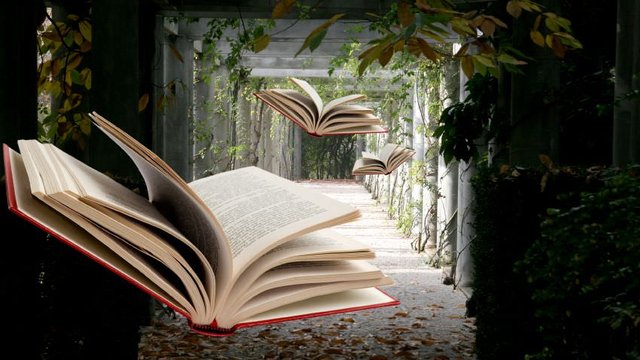
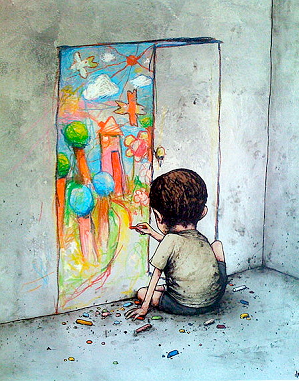
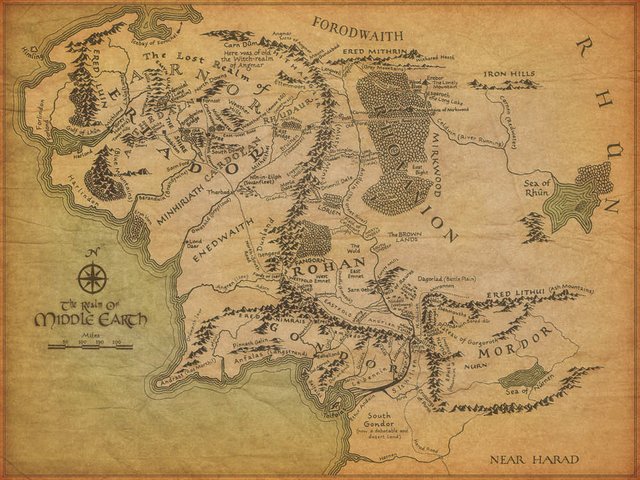
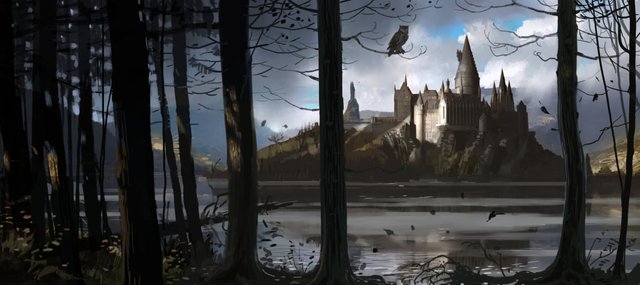
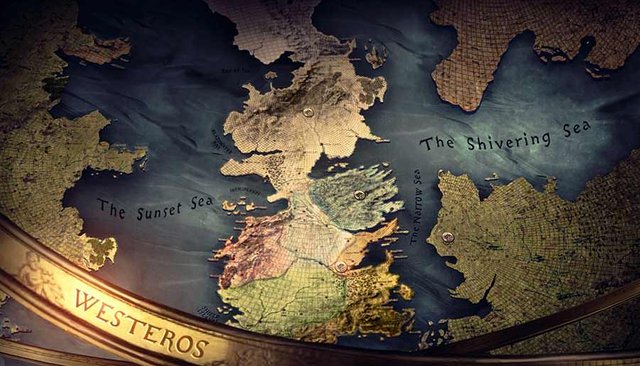
Masterpiece post, self explanatory From human being been addicted to the use of technology to escaping to freedom through fiction.
But where i loved the most is when you wrote
|"A beautiful detail to note about all of these fictions is that they're really just mirrors of our own world"|
Respect on your view @honeydue.
Downvoting a post can decrease pending rewards and make it less visible. Common reasons:
Submit
Thank you very much, I'm glad you liked it! :) I'd say the best fictions/fantasies are very much like our own world. Fiction is about escape and the closer it seems to reality, the more comfortable we're going to be in our escape :D
Downvoting a post can decrease pending rewards and make it less visible. Common reasons:
Submit
This is a fascinating topic, @honeydue. I believe that since man exists, he has looked for a way to evade reality. Sometimes it will be induced, other times it will be
through the arts: reading, writing, painting, music! Just today in the series of Photos of @velimir, I asked him why man eludes, avoids, present? Fantasy or fairy worlds are the preferred worlds for that escape, even for the smallest ones. they recreate fictitious and unreal world where they can be the protagonists, characters from worlds that will never exist. Even, according to some studies, children with family or social problems tend to create themselves parallel worlds where they can hide and live another life. A good way to escape from reality. I think Venezuelans would have to read a lot to escape our nightmare! Welcome to the group of writers of @adsactly, @honeydue!;)
Downvoting a post can decrease pending rewards and make it less visible. Common reasons:
Submit
Thank you @nancybriti! I think so, too. I was just talking to someone about fantasy - it's so much in our nature, it's so normal for a human being to wander off in his own head (or someone else's!).
I agree, although I think in any reality (even this one, whatever it may be like), each of us is a protagonist in his own story, even if it's bad or disappointing. But naturally, if I don't like it, I'll just go and invent another. And maybe that's not so bad :)
Well, who'd blame them? I'd say we all create parallel worlds for ourselves where we do things differently, where we are someone else...Your comment above reminded me of a story in the Sandman saga (also Neil Gaiman's) about an abused boy who escapes into his dreams where he spends his time with heroes - amazing read, by the way (in case you haven't read it already :D).
And thank you, I am so glad to be here! :D
Downvoting a post can decrease pending rewards and make it less visible. Common reasons:
Submit
The escapist consciousness has been characteristic of humanity since its inception. Mythological images, ideas about the afterlife, legends about the “golden age”, legends about magical lands inhabited by amazing creatures - all these are fruits of escapist consciousness. On the one hand, it was an attempt to cope with the fear of the incomprehensible, the unknown: an attempt to rationalize the inexplicable. That which is beyond the bounds of the possibility of knowledge is transformed into a myth, into an artistic image, into a fantasy. But on the other hand, an attempt to get rid of the fear of the unknown led precisely to escapism - in this case, escape from ignorance, the impossibility of knowledge to artificially construct pleasant or, on the contrary, frightening, exciting images of imagination and worlds. Yi-Fu Tuan, an American geographer of Chinese origin, notes that craving for escapism leads man’s imagination to not only the beautiful and the best, but also to the terrifying and nightmarish. Children completely begin to fear the darkness and “someone who hides under the bed”, our consciousness constantly gives rise to our often unfounded fears, which, nevertheless, we need for life diversity. If there are not enough impressions in our life, we begin to look for “sources of adrenaline” in extreme sports, horror films, or simply watching the suffering of other people (from public executions of the Middle Ages to the news programs of our days).
Downvoting a post can decrease pending rewards and make it less visible. Common reasons:
Submit
Addiction seems impossible to prevent, just like you said it is normal to get addicted and I agree with you on this because we never care to ask why.
On the other hand we really need anything as important as peace. It is true the world is extremely far from peace and it worries my heart to someone extent I feel we're not safe anymore.
Downvoting a post can decrease pending rewards and make it less visible. Common reasons:
Submit
id better rise up than to live in false reality.
Downvoting a post can decrease pending rewards and make it less visible. Common reasons:
Submit
Great post, i wrote a few on changing your reality, check it out if you have time
Downvoting a post can decrease pending rewards and make it less visible. Common reasons:
Submit